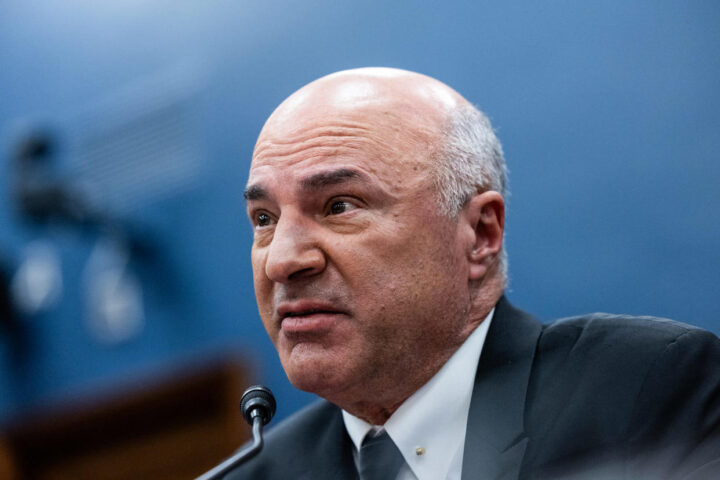Following Donald Trump’s recent victory, speculation has surged about how his administration might shape the economic landscape, particularly for small businesses. Small enterprises, often described as the backbone of the U.S. economy, employ nearly half of the country’s workforce and contribute significantly to innovation and local communities. Dr. Sarah Mitchell, an esteemed professor at Georgetown University’s McDonough School of Business, shared insights into the potential changes and challenges small business owners may encounter in the coming years.
Tax Reforms Favoring Small Businesses
One of the key policy areas Trump campaigned on was tax reform. During his campaign, Trump emphasized the importance of reducing the corporate tax rate to boost American businesses’ competitiveness. Dr. Mitchell anticipates that Trump’s administration may seek to simplify the tax code, providing relief to small businesses that currently face complex and often burdensome tax obligations.
“A simplified, lower tax structure could allow small businesses to reinvest in their operations, hire more employees, and even expand into new markets,” explains Dr. Mitchell. “Lower taxes mean more cash flow, which is crucial for smaller enterprises operating on thin margins.”
However, she also warns that tax reductions on the corporate level might benefit larger corporations more than small businesses unless specific provisions target the small enterprise sector.
Deregulation: A Double-Edged Sword
Another aspect of Trump’s campaign was a strong stance on deregulation. Trump often argued that overregulation stifles business growth, and many believe his administration will likely roll back several Obama-era regulations that some perceive as restricting small business activities.
Dr. Mitchell points out that while deregulation could be advantageous for small businesses by reducing operational costs and compliance burdens, it might have a downside. For example, easing labor or environmental regulations could result in a backlash from consumers who prefer to support environmentally conscious or employee-friendly businesses.
“Deregulation is a mixed bag,” says Dr. Mitchell. “Less red tape could certainly benefit small businesses, but owners must be mindful of public perception, especially in sectors where consumers are increasingly socially and environmentally aware.”
Healthcare: A Rising Concern
Healthcare is another area where Trump’s policies could have a significant impact. His stance on repealing the Affordable Care Act (ACA), commonly known as Obamacare, was a cornerstone of his campaign. While many business owners have expressed frustration with the rising costs of providing healthcare under the ACA, the repeal could lead to uncertainties that affect small business owners and their employees alike.
“Repealing the ACA might reduce healthcare costs for employers, but it could also leave employees without adequate coverage,” Dr. Mitchell points out. “This change could create tension in the workforce as employees value their health benefits. Small business owners may find it challenging to attract talent if healthcare becomes unaffordable or inaccessible for employees.”
Small business owners may face tough decisions on whether they can afford to offer healthcare or not, potentially affecting recruitment and retention.
Trade Policies and Supply Chains
On the international front, Trump’s emphasis on “America First” could impact global trade relationships, with potential tariffs or restrictions on goods imported from countries like China. While this policy aims to encourage domestic manufacturing, small businesses that rely on affordable imports for their goods could see their costs increase, particularly in industries such as retail and manufacturing.
“Protectionist trade policies could mean higher import costs for small businesses, which are often unable to absorb price hikes the way large corporations can,” says Dr. Mitchell. “In the short term, this could lead to price increases for consumers or even a need for some small businesses to pivot their business models.”
Access to Capital and Financial Markets
A final area Dr. Mitchell highlights is access to capital. Trump’s promises to spur economic growth may boost financial markets, potentially leading to an increase in available capital. Lower interest rates and a more business-friendly lending environment could make it easier for small businesses to secure loans.
“When capital is more accessible, small businesses can borrow at lower rates, which can be a lifeline for struggling companies or those looking to expand,” says Dr. Mitchell. However, she also notes that if interest rates rise as a result of inflation, borrowing costs may eventually increase, potentially stifling growth for small enterprises with limited financial resources.
Donald Trump’s victory signals a potential shift in the business landscape, and while the effects on small businesses may vary, Dr. Mitchell underscores that preparedness will be essential. Small business owners should stay informed and ready to adapt as policies change. With tax reforms, deregulation, healthcare adjustments, trade policies, and access to capital all likely to experience shifts, there is both opportunity and risk on the horizon.
“There’s no doubt that changes are coming,” concludes Dr. Mitchell. “But small businesses have always shown resilience and innovation. With the right support, they can continue to drive economic growth and community development in America.”
As Trump’s administration sets out to implement its agenda, the small business community will be watching closely, ready to adapt to both the challenges and opportunities that lie ahead.








